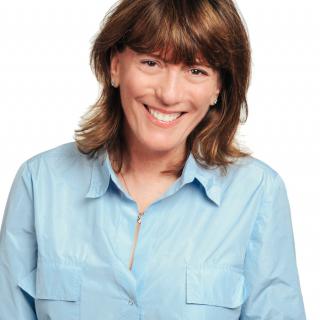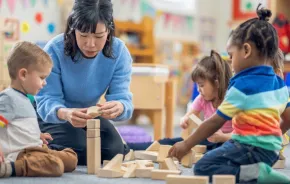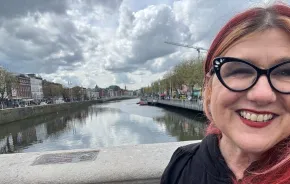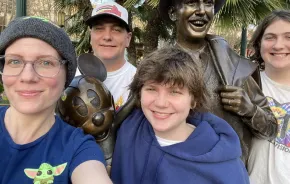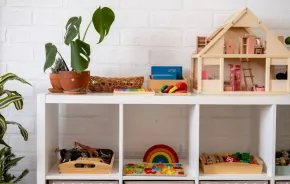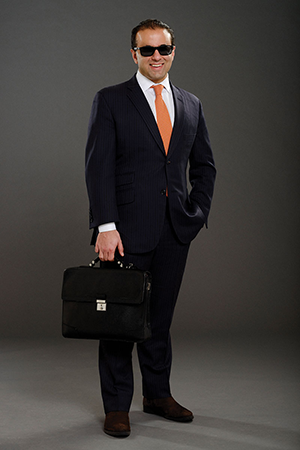
Cyrus Habib was 8 years old when he lost his eyesight to cancer. As he likes to joke, that means everyone still looks like Cyndi Lauper and Boy George, right?
Good-humored and vivacious, Habib is the son of Iranian immigrants. His father left Tehran during the Iranian Revolution and came to Washington state when he was 17 to study engineering. In order to join her husband, Habib’s mother left Iran, went to Europe, lived in a Parisian convent for a year during the Iran hostage crisis until finally being reunited with Habib’s father.
Habib inherited his parents’ tenacious spirit. He refers to his grade school years as “from Braille to Yale” and says it’s when he really learned how to best advocate for himself. His mother provided a strong example. A newly minted lawyer who eventually became a judge, she fought for her son to have equal access in school. She also made sure young Habib memorized every corner of the playground so he would be included in activities.
Including others has driven Habib for decades. His inner power and will led him to become a black belt in karate, a jazz pianist, a Rhodes Scholar, editor of the law review at Yale, an attorney at a prestigious law firm and now lieutenant governor of Washington state.
“The whole point in running for office and in serving goes back to, what did being a three-time cancer-surviving, fully blind, Iranian-American from a mixed-religion immigrant family — what did it teach me about this country?” Habib says. “It taught me about the importance of inclusion [and] the importance of interdependence.”
He continues: “Every day I’m relying on other people for help, but I don’t view that as a sign of weakness. [Rather,] I thought about how I can also help others. That’s hard to do in politics. I’ve had to learn how to do it better.”
What’s one takeaway you’d like families to understand about your line of work or area of expertise?
I wear three hats in my job as lieutenant governor. One is I am the president of the state Senate. The second hat I wear is I serve as the acting governor whenever he’s not in the state; that happens about 60 days a year. And then third is that I run my own small little office.
Who inspires you?
My mother. Her advocacy for me as a young boy seemed unlimited. She said: “I’m gonna teach him how to get around the jungle gym. I’m gonna teach him how to get around the whole playground. He’s gonna learn it and he may learn it differently, but he will learn it just as well as any other kid knows how to get around.”
And that’s when she said, “It may happen that he might slip and fall, and he might even slip and fall and break his arm — that’s a fear that any mother has. But I can fix a broken arm; I can never fix a broken spirit.”
What is your advice to parents with kids with disabilities?
I know it’s really hard for parents with kids with disabilities. So, one of the most outstanding books all should read is “Far From the Tree” by Andrew Solomon. … He tells the stories of parents who not only learn to deal with their exceptional children but also find profound meaning in doing so. … This book and its message affected my thinking tremendously.
Best advice for kids with big ambition?
It’s about letting every kid know [that] you can do whatever you want to do. We, the adults, will have the imagination to help figure out how it’s going to happen or step aside. And then yes, from a place of strength, if you want to go do whatever it is you want to do, we should give dignity and honor to all those choices.




